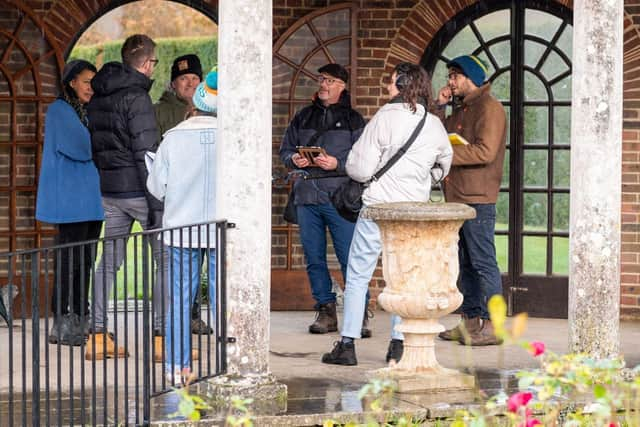Radio 4 Gardeners’ Question Time visits Herstmonceux Castle
and live on Freeview channel 276
It will be broadcast this Friday (December 17) and Sunday (December 19) and will see the panel answering questions from the public whilst exploring the castle’s 300-acre public estate.
The panel of horticulture experts, chaired by Peter Gibbs, were hosted by the castle’s gardens and grounds manager Guy Lucas with the location being chosen to showcase some of the work undertaken on the Estate to increase biodiversity and sustainability.
Advertisement
Hide AdAdvertisement
Hide AdMr Lucas said, “It was a pleasure to welcome Gardeners’ Question Time to the castle.


“It’s such an iconic show in the gardening world and it was an honour to be asked to be part of the recording of the show and to be able to showcase our work on sustainability and biodiversity to both the panel of experts and the listeners.”
Launched in 1947 BBC Radio 4’s Gardeners’ Question Time has been described as a national institution which attracts millions of listeners around the world.
Herstmonceux Castle is one of the oldest significant brick buildings still standing in England, dating from the 15th Century.